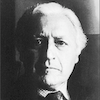- 25 Jan 2014 12:43
#14357390
Yes, absolutely, but socialism first has to be defined. Not in the sense of left-socialism or Marxian socialism, but assigning all manifestations of socialism to the left-wing is in my view an all too common error. Socialism has developed as a tendency in the developing and undeveloped parts of the world in communities completely independently of any Marxist baggage and it is unlikely that without the influence of the Soviet Union and superpower politics, indigenous forms of socialism from Africa to Latin America would necessarily find common cause with Marxist internationalism at all. Such variations were not expressely linked to liberalism, fascism, or other ideologies conceived in the Western world either. Consider the pan-Mayan movement which arose in Guatemala during the early years of the civil war and argued for a collectivist reformation of a Mayan nation stretching from the Yucatan in southern Mexico to Belize, Guatemala itself, and into western Honduras. A Mayan polity based upon principles of shared ethnic identity, linguistic identity, cultural identity, and religious-spiritual identity, along communitarian principles of an agrarian-based socialism.
Much has been made of the fact that Mussolini began his career in politics as a socialist and ended as a fascist. I would contend that Mussolini was always a (lowercase) national-socialist whose views on individual issues changed from time to time to accomodate different realities in the changing face of Europe and the world, but that his ideology from inception was always moving toward a singular goal.
Marxist-Leninism and the variant of socialism which is associated with it (and is typically what the mainstream of Western academia are referring to when referring to "socialism" or "socialists", such as Francisco Largo Caballero as one of many examples) is incompatible with nationalism. It seems to me however that it will from time to time invoke nationalism, or even ultra-traditionalist, religious, or patriarchal themes which retain more popularity than a "new" ideology like internationalist/Marxist socialism and are clearly ingrained in the national psyche. This seems to be more often the case during periods of crisis, when the ruling Marxist state doesn't have the time to engage in ideological deconstruction. Stalin's appeal to defend "Mother Russia" from the Wehrmacht and even allusions to Russia's imperial, Tsarist past are one famous example of this.
As for post-1945 socialism in the global south, this is more complicated. Ba'athism, to use one of your examples, is a form of right-socialism, though some one alternatively refer to it as a form of left-nationalism and it is well known that regionally there was a struggle between the left-wing and right-wing of the Ba'ath Party with the Saddamist faction (Iraqi Ba'athism) representing those drawn more to the right-wing and Syrian Ba'athism being slightly more leftist. Saddam and others before him who inspired and stood behind the Ba'athist coup in Iraq maintained more respect for and a closer ideological link to the heritage of European fascism and in addition were more prone to what some would call provincial nationalism (Iraqi nationalism) as opposed to pan-Arab socialism. This was one of the leading factors behind the infamous division of the Ba'ath Party in the Arab world, because Syrian Ba'athists were more pro-regional integration (and in fact pushed for the United Arab Republic's formation, which was a unitary state with Egypt and which Iraq was originally supposed to join) wheras the Iraqi right-wing was historically more suspicious of this move and didn't want to surrender national control (on issues such as where the capital would be). In addition, although Syria and Iraq were both close to the Soviet Union, Syria was closer and maintained an alliance with domestic Syrian communists which lent the state broader legitimacy across the spectrum whereas Iraqi intelligence and security forces actively persecuted and executed communists en masse once they outlived their usefulness.
It should also be said that some of this has to do with geopolitical convenience or strategizing and the realities of the post-1945 world. Subhas Chandra Bose, although pre-'45, is a prime example. Although the Netaji was an admirer of the Soviet Union and sympathized with some Marxist ideals even until death (there is no evidence, for example, that even as an ally of the Axis he ever supported racialism but sympathized with the Soviet stance on racial egalitarianism), he aligned with National Socialist Germany and Imperial Japan because these were at the time the primary world powers opposing British imperial power. The Soviet Union, to stave off fascism and later for other obvious reasons, came into accomodation with the British Empire and thus had no plans whatsoever to undermine the British Raj. This alliance of Bose's gradually led to a more right-wing movement amongst his forces in the Indian National Army, not only because it was Japanese-sponsored but because sympathies with the Axis were already commonplace amongst interwar-era observant Hindus, Hindu nationalists, and even many secular Indian nationalists. If history were different and it was Moscow in the position of primary opponent of British colonialism at the time, I have no doubt that many Indian supporters of Bose and indeed Bose himself would have adjusted ideologically.
Post-1945, many of the "post-colonial socialist" movements you reference were in many cases state socialist and nationalist. Going by what the leaders of movements said though or some superficial trappings is a bad idea, because the Soviet Union was the only major opponent of international capitalism and liberalism represented by the United States (which was previously allied to European - particularly British and French - colonialism and post-war would support economic puppetization of the same former European colonies without a European military presence). Thus, men like Nasser and Sukarno adjusted accordingly. Their socialism was never dogmatically Marxist. Nasser is the perfect example. Him and his brother had Axis sympathies, eagerly awaited the arrival of the Afrika Korps in Egypt and wished for German forces to march on Alexandria and Cairo, and only really turned against King Farouk's regime when the British still present in Cairo forced the ouster of Prime Minister Hussein Sirri Pasha who was considered pro-German. Later on, many former German officers including Abwehr intelligence assets went on to serve in distinguished positions in Egypt, including during the Nasserist period. If the war went differently, there is nothing to suggest that Nasser's form of Egyptian socialism which was extraordinary popular would ever have made an alliance with international communism.
There are endless examples.
Last edited by Far-Right Sage on 26 Jan 2014 08:27, edited 1 time in total.
"I am never guided by a possible assessment of my work" - President Vladimir Putin
"Nations whose nationalism is destroyed are subject to ruin." - Muammar Qaddafi






 They argue for something akin to socialism but it would be completely Indian and suited to India only, I don't think this theory has been defined though i.e. what would this Indian socialism entail.
They argue for something akin to socialism but it would be completely Indian and suited to India only, I don't think this theory has been defined though i.e. what would this Indian socialism entail.

















 - By Potemkin
- By Potemkin